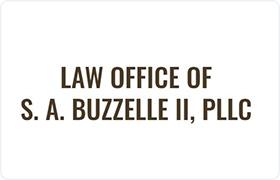Phoenix Collection Lawyer, Arizona
Sponsored Law Firm
-
 x
x

Click For More Info:
-
Law Office of S.A. Buzzelle II, PLLC
14050 N 83rd Avenue Suite 290 Peoria, AZ 85381» view mapBankruptcy & Debt Law Your Trusted Bankruptcy Attorney
If you are in need of legal services for matters relating to bankruptcy and divorce, rely on Law Office of S. A. Buzzelle II, PLLC in Peoria, AZ.
800-873-4991
Michael J. Fuller
✓ VERIFIEDEstate, Collection, Business, Contract, Litigation
In 1988, I started my own firm without any clients but with a steadfast commitment to practice law consistent with my own ideals and personality. I tr... (more)
Brad A Denton
✓ VERIFIEDEmployment, Lawsuit & Dispute, Business, Real Estate, Collection
Brad represents primarily small businesses, and so he practices primarily in the areas of law that small businesses need. As a practical matter, Brad ... (more)
Ronald J. Ellett
Reorganization, Credit & Debt, Bankruptcy, Bankruptcy & Debt, Collection
Status: In Good Standing
FREE CONSULTATION
CONTACTJ Henk Taylor
Collection, Commercial Real Estate, Bankruptcy & Debt, Bankruptcy
Status: In Good Standing Licensed: 29 Years
Stanley M Hammerman
Litigation, Federal Trial Practice, Family Law, Insurance, Collection
Status: In Good Standing
Stanley M Hammerman
Motor Vehicle, Criminal, Business, Collection, Bankruptcy & Debt
Status: In Good Standing Licensed: 49 Years
Nathaniel Paul Nickele
Collection, Trusts, Commercial Real Estate, Wills
Status: In Good Standing Licensed: 15 Years
Nathaniel Paul Nickele
Real Estate, Collection, Trusts, Commercial Real Estate
Status: In Good Standing Licensed: 15 Years
Nathan J Brelsford
Commercial Real Estate, Collection, Bankruptcy, Bankruptcy & Debt
Status: In Good Standing Licensed: 18 Years
 Stanley A. Buzzelle II Peoria, AZ
Stanley A. Buzzelle II Peoria, AZ Practice AreasExpertise
Practice AreasExpertise



